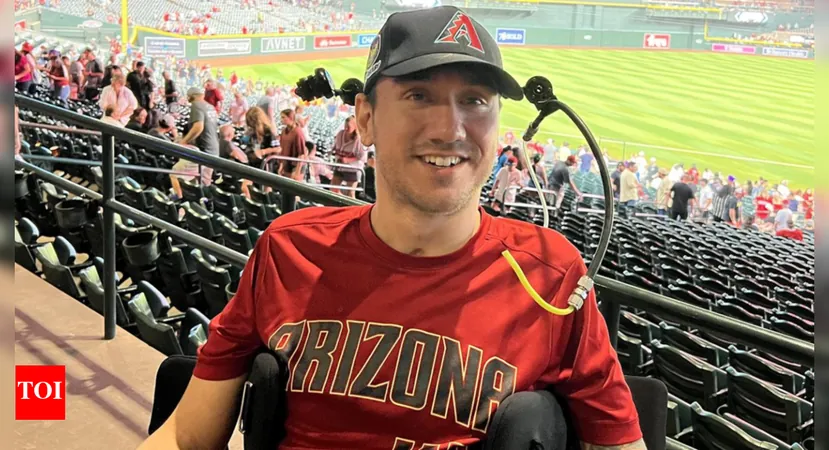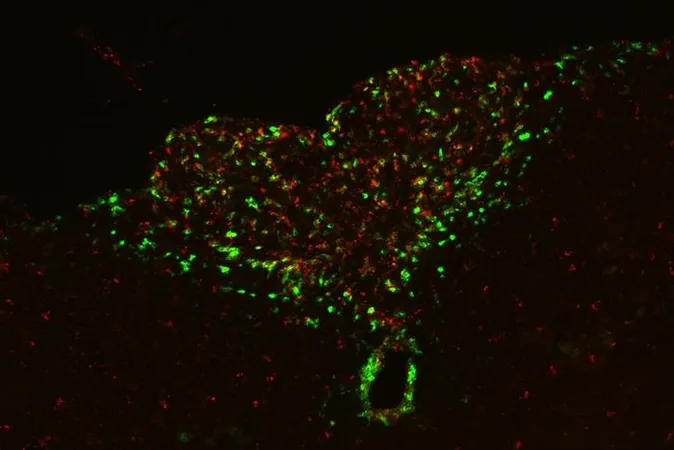
From Paralysis to Possibility: How Elon Musk’s Brain Chip Transformed One Man’s Life
2025-04-12
Author: Wei Ling
A Historic Leap in Neurotechnology
In a remarkable turn of events, Noland Arbaugh, a 30-year-old man from Arizona, has defied the odds after receiving a groundbreaking brain chip implant from Elon Musk’s Neuralink. Once paralyzed below the shoulders due to a diving accident in 2016, Arbaugh’s journey took a revolutionary turn with this cutting-edge technology.
A Mind-Controlled Marvel
After undergoing surgery in January 2024, Arbaugh can now control a computer merely by thinking about moving his fingers. "You just have no control, no privacy, and it's hard," he recalled of his early struggles with paralysis. However, the brain-computer interface (BCI) has allowed him to execute thought commands, leading him to play video games and even triumph over friends in chess—something he never believed would be possible following his injury.
The Science Behind the Miracle
Neuralink’s chip, while not the first BCI, has garnered significant attention due to Musk's high-profile involvement. Arbaugh emphasizes that the real focus should be on scientific advancement, saying, "If everything worked out, then I could help being a participant of Neuralink." The chip detects brain signals related to movement, translating them into digital commands, aiming to push the boundaries of human-machine interaction.
Turning Challenges into Triumphs
Like any innovative endeavor, the path hasn’t been entirely smooth for Arbaugh. He faced a temporary setback when the device partially disconnected, causing distress before being resolved through software tweaks. Despite concerns over privacy issues raised by experts, Arbaugh remains optimistic about the future, eyeing the possibility of using the chip for more than just gaming—such as controlling a wheelchair or even a robotic arm.
The Future of Brain-Computer Interfaces
Neuralink isn't the only player in this emergent field. Competitor Synchron has developed a less invasive option by inserting its device through a blood vessel. A fellow user known only as Mark has enjoyed the ability to explore virtual realms using the chip alongside Apple’s Vision Pro headset.
A New Dawn for Neurotechnology
As Arbaugh participates in a six-year study for Neuralink, he reflects on the vast unknowns surrounding brain function. "We know so little about the brain and this is allowing us to learn so much more," he stated. Arbaugh’s story is not just a personal victory; it signals the dawn of a revolutionary era in neurotechnology, with potential implications ranging from restoring movement to enhancing human-machine interactions.
Stay tuned, because the future might just be wired to our thoughts!



 Brasil (PT)
Brasil (PT)
 Canada (EN)
Canada (EN)
 Chile (ES)
Chile (ES)
 Česko (CS)
Česko (CS)
 대한민국 (KO)
대한민국 (KO)
 España (ES)
España (ES)
 France (FR)
France (FR)
 Hong Kong (EN)
Hong Kong (EN)
 Italia (IT)
Italia (IT)
 日本 (JA)
日本 (JA)
 Magyarország (HU)
Magyarország (HU)
 Norge (NO)
Norge (NO)
 Polska (PL)
Polska (PL)
 Schweiz (DE)
Schweiz (DE)
 Singapore (EN)
Singapore (EN)
 Sverige (SV)
Sverige (SV)
 Suomi (FI)
Suomi (FI)
 Türkiye (TR)
Türkiye (TR)
 الإمارات العربية المتحدة (AR)
الإمارات العربية المتحدة (AR)